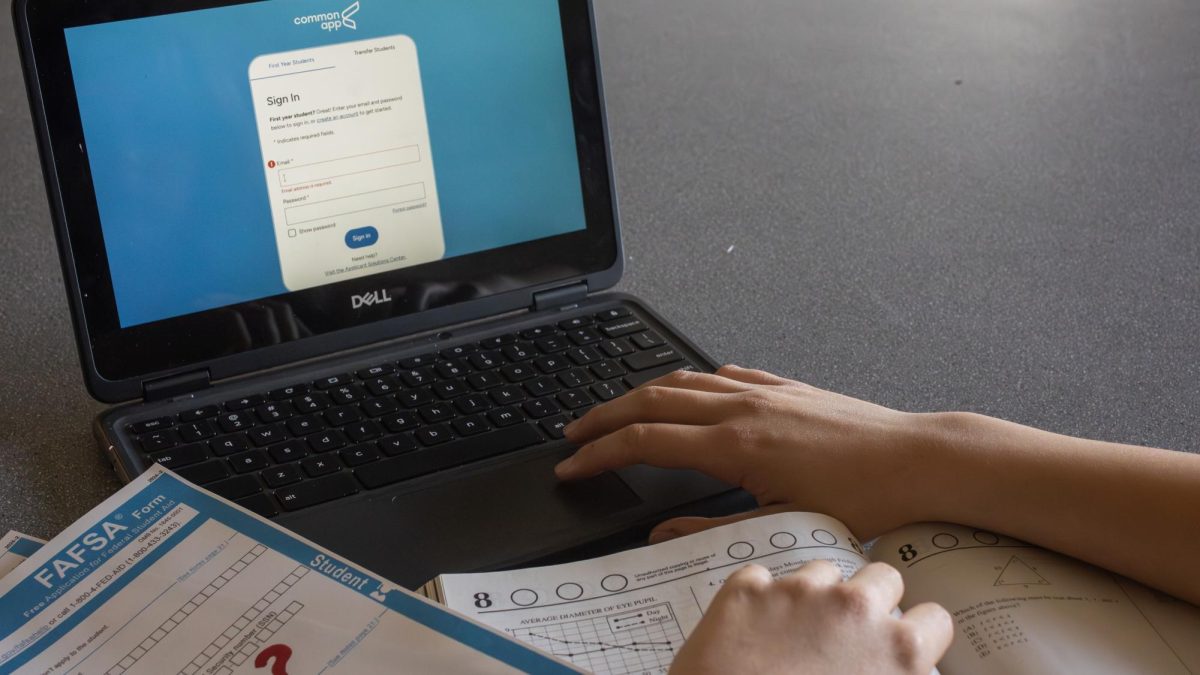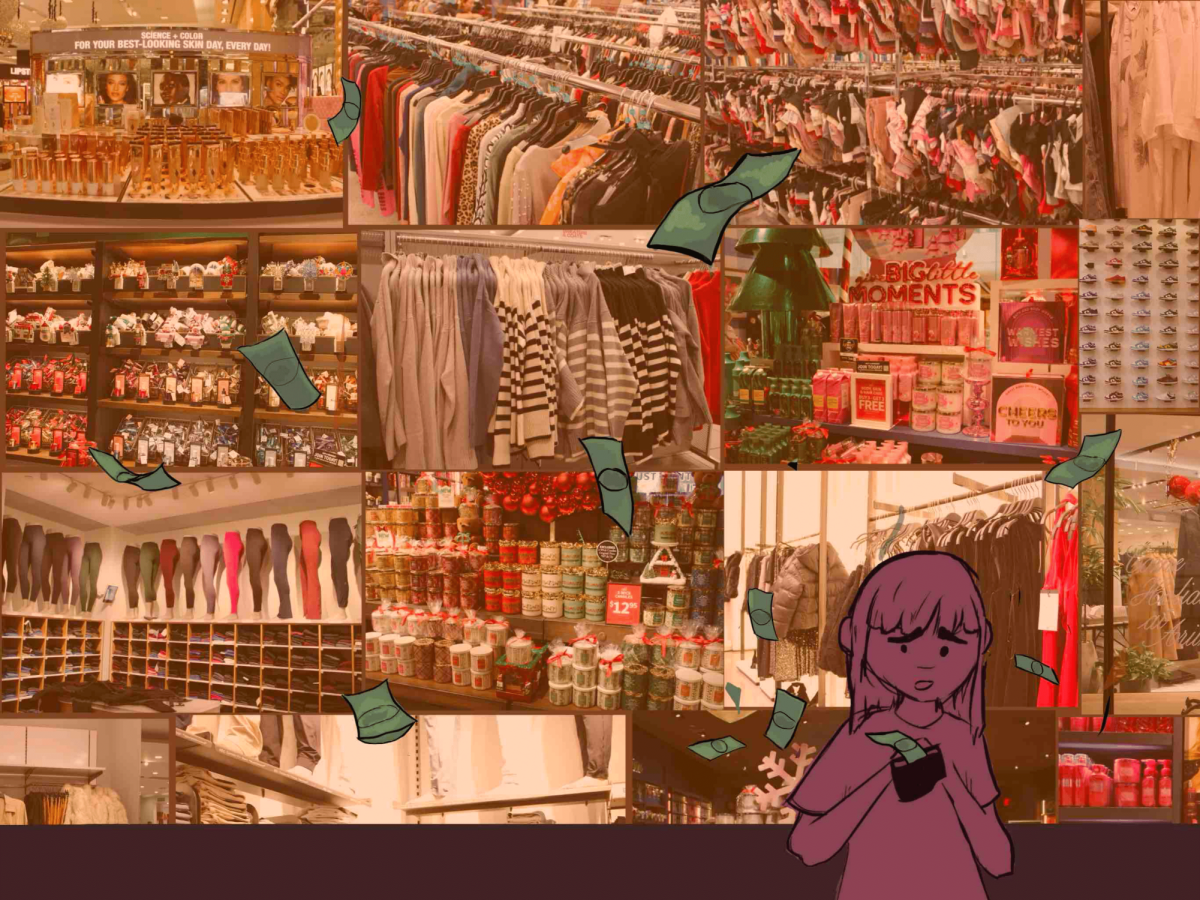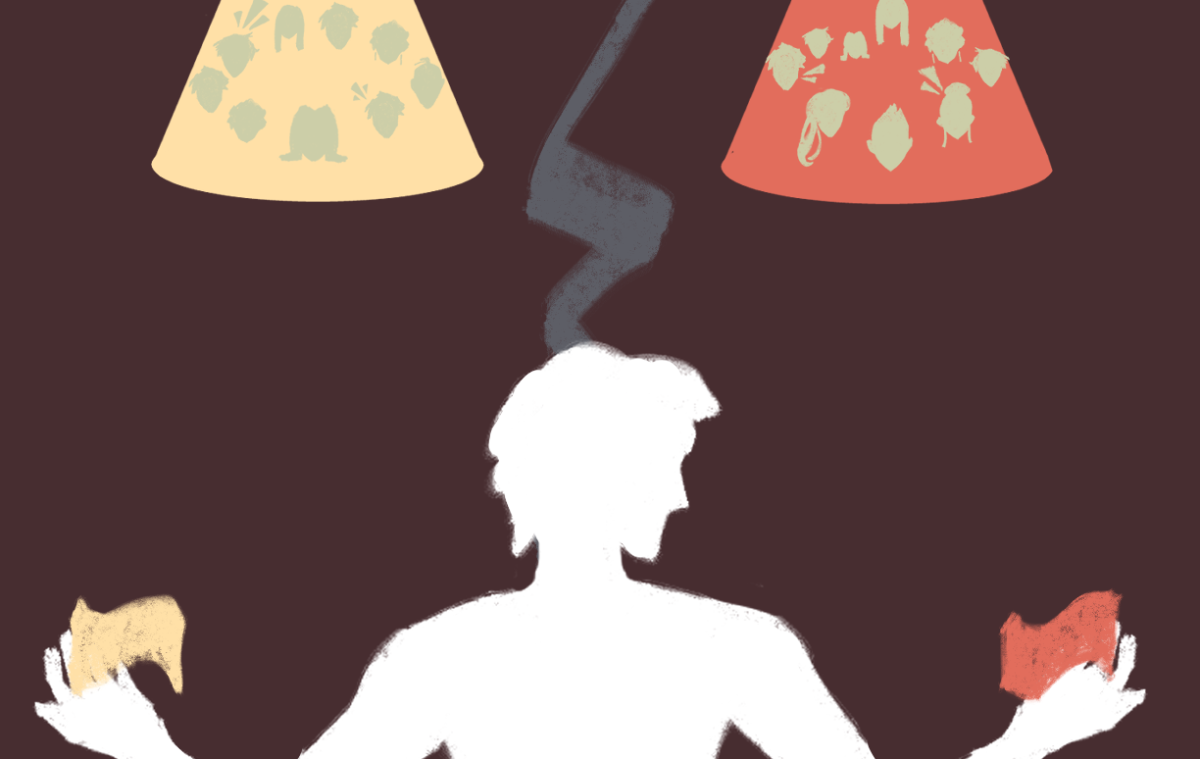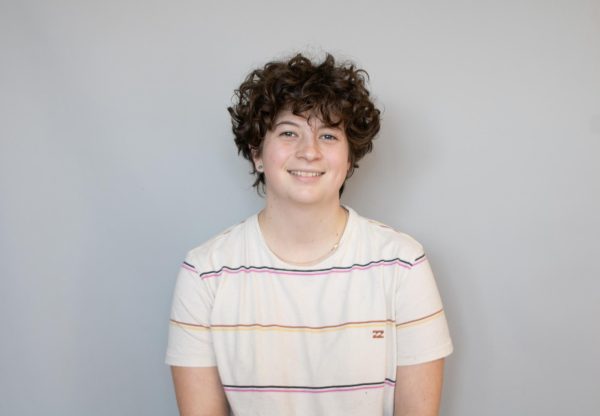Senior Elsy Matias is sitting at home, enjoying a quiet night in. Scrolling through social media, she sees that her friends have posted pictures of a party they’re attending. As she flips through the post, anxiety creeps into her mind. An acute feeling that she’s missing out starts to take over. Matias has never been allowed to go to many big social events, on account of her strict parents, and has come to appreciate quiet nights at home. Still, she can’t help but wish that she could attend parties, so that she could participate in the ones she sees her friends go to.

Matias is not alone in this struggle. Many Lowell students feel internalized pressure, stemming from a fear of missing out and social comparison, to live up to a certain high school experience.
Lowell students often find themselves comparing their own high school experience to those that they see portrayed in social media, film, TV shows, as well as exemplified by their peers. Because these forms of media display a curated experience that tends to differ from reality, students are left comparing their own lives to unrealistic ideals, feeling deprived of an experience that seems less stressful and more fun than their own. This comparison has led students to feel that they are missing out on many of the social connections, romantic relationships, and parties that seem to characterize a fun high school experience.
Dr. Jacqueline R. Rifkin, a psychology graduate who has spent the last decade researching the fear of missing out, also known as FOMO, defined the phenomenon primarily as an “anxiety that arises when people miss opportunities to connect with valued social relationships,” but added that FOMO can also apply more generally to anything a person feels that they missed out on. She said that it often isn’t missing the events or experiences themselves that leads to this anxiety, but rather the perception of missing important social bonding or the formation of new memories. For example, Rifkin said, when a person misses a dinner out with friends, they feel FOMO because their friends spent that time together without them, forming new memories and social bonds, and not because they missed the food or drink. Because of this, people can feel FOMO even when the event or experience they missed was boring or uninteresting to them.
According to Rifkin, FOMO often goes hand in hand with social comparison, in which humans are constantly contrasting their own experiences with those of others. Lowell Psychology teacher Steven Shimmon said that the psychological theory of relative deprivation is a powerful component of this phenomenon. “We look at somebody else and we feel that we don’t have enough or we’re not good enough, and that makes us feel anxious or unhappy,” he said. Social comparison is particularly powerful in teenagers, Shimmon said, because they are searching for identity, and often look to their peers or popular media to find it.
Influences in the media amplify the anxieties that stem from FOMO and social comparison, both in the TV that teenagers watched while growing up, and the hundreds of social media posts that they scroll through on a daily basis. Social media frequently induces feelings of FOMO for its users, Shimmon said, because it presents a very curated and skewed version of a person’s life. “We’re comparing our very complex lives to somebody’s best self,” he explained, causing individuals to view their own lives more negatively in comparison. Similarly, media like TV shows and movies tend to offer distorted perspectives of life and struggles, Shimmon said, because conflict is resolved and characters achieve their goals in ways that do not often happen in real life. Seeing such an empowering experience on screen can encourage viewers to chase their own dreams, Shimmon said, but can also lead to them feeling deprived of that experience when their own life differs. “In general, comparing ourselves to images in the media is leading to someone feeling more anxious rather than empowered,” he said.
Some Lowell students feel that the TV shows they watched as children influenced their perception of high school. Growing up, Matias watched Disney’s popular High School Musical trilogy, which prompted her to develop elaborate ideas of what her high school experience would be like. She was excited for the big friend groups and romantic relationships that she thought would soon consume her life. Going into freshman year, she branched out to many social circles and clubs, hoping to find friends and gain the popularity that she saw displayed in these shows. However, Matias observed that many of her classmates were already well-established in the aspects of the social atmosphere that she had always dreamed of being involved with. She began to feel that there was no space for her, as her classmates seemed already far ahead in making connections and establishing themselves. Matias felt pressured to do things she saw the well-known people in her grade doing, like using drugs and alcohol, because she thought it would lead to popularity. The fact that her parents wouldn’t let her go to parties or other events only made things worse, since that’s where all the popular people seemed to be. Because of this, she felt like she couldn’t be popular unless she attended parties or used substances.

Matias is not the only Lowell student that feels that TV shows and social media present a misleading representation of high school. In a survey of 132 students conducted by The Lowell in March 2025, over 50 percent said that TV shows, movies, or social media influenced how they thought about high school, and over 80 percent said that their high school experience has differed from what they saw in TV shows or movies. Darcy, a junior under a pseudonym, has found her high school experience to be different from what she saw portrayed in popular media growing up. Due in large part to the influence of Disney shows like High School Musical, she had always pictured high school as a primarily social experience that included having many friends and going to lots of parties. However, Darcy has found high school to be more rigorous and time-consuming than she expected, leaving her with little time to do other things, like hanging out with her friends. Instead, she finds herself doing school work and working at her job, an aspect of high school that was not portrayed in the shows she watched growing up. Part of this, she believes, is due to the more academic and competitive atmosphere at Lowell compared to some other high schools. Overall, Darcy said, high school is more stressful than she had thought it would be. “It isn’t as fun or carefree as it was portrayed in those shows,” she said.
In her attempts to chase popularity and the experience she saw displayed in the media, Matias began to change herself, emulating the people around her to try and fit in. She developed a fake personality, and used this persona whenever she interacted with her peers. This strategy was seemingly successful, as Matias began to rise in popularity, befriending those she looked up to. However, she felt that the environment that she surrounded herself with was inorganic and, Matias realized, one she didn’t enjoy and didn’t want to be part of. Over time, it became more difficult and less gratifying to uphold a fake persona. “It got really irritating to a point where I just wasn’t content with my day to day or just my life, and it really dragged along,” she said. Matias had become an entirely different version of herself in order to meet the expectations that she had placed on her high school experience, and ultimately felt that the goal that she had changed herself to reach was not worth the sacrifice.
TV shows are not the only form of media that influence how students think about high school — social media also has an imposing presence in teenagers’ perceptions of the ideal high school experience. Seeing other high school students constantly going places and hanging out with their friends makes Darcy feel left out, she said, because her social experience differs from theirs. As a self-described introvert with a smaller group of friends, seeing these stories on social media makes her feel as though she’s having less fun than her classmates because she doesn’t go out or travel as often. Senior Yahir Anguiano feels similarly, as he has spent the majority of his high school career trying to live up to the experience he saw portrayed in social media. Like Darcy, he would often see people posting about attending school events like dances. He longed to partake in these events, but felt like he didn’t know enough people to attend, and had a constant feeling of time slipping through his fingers. Because of this social anxiety, he didn’t start to meet people he wanted to be around until more recently. As he nears the end of his senior year, Anguiano can’t help but feel that he’s let key parts of the high school experience pass him by because of his social reservations in earlier years. “I feel like I did not fulfill the high school experience,” he said, “I missed out a lot on meeting new people and just going out more.”
Another facet of the high school experience that Darcy feels she is missing is high school romance. Because she has never had a crush, much less a romantic relationship, Darcy feels like she is missing out on this aspect, which is often portrayed as a staple of the high school experience. She feels pressured to find a love interest, even though she doesn’t have the time to dedicate to a partner. “Seeing other couples around, I feel like I’m missing out, because that seems kind of sweet and fun,” Darcy said, “But I know that, in reality, I’m too busy for a relationship.” Chloe, a senior under a pseudonym, relates to the pressure of finding a high school love, which she finds magnified as she enters her final months at Lowell. Chloe said that teenage love is a big aspect of how people view their high school experience, and that she often talks about it with her friends and hears them saying “‘I feel like I can’t graduate yet because I haven’t had a boyfriend.’” Chloe and Darcy are not alone in feeling this pressure; out of 133 Lowell students surveyed, almost 40 percent said that they have felt pressure to have a romantic or sexual relationship during high school.
Some students have felt pressured to use drugs to live up to the high school experience they see portrayed in the media. In a survey of 133 Lowell students, only 10 percent said that they had felt pressured to consume drugs or alcohol in high school. Even so, some students have felt influenced to use illicit or addictive substances. Jordan, a senior under a pseudonym, said that she never had an interest in drugs because of health worries and a family history of addiction. Despite this, Jordan felt pressured to use substances in high school, and began to experiment with weed and cigarettes. This pressure came from a complex mix of internal and external expectations that associated substance use with the teenage experience, as well as the idea that she was running out of time to experiment as a teenager. “I had to face the fact that I only really wanted these things because it was something I was influenced to want,” she said.
So, how can students better deal with FOMO and social anxiety? According to Shimmon, while it’s unrealistic to expect someone to stop comparing themselves to others — a tendency that is intrinsic to human nature — there are ways that students can reframe that social comparison in a more positive light, lessening the anxiety that stems from it. He outlined two key aspects to reframing comparison: redirecting social comparison and being aware of unrealistic portrayals and comparisons. Instead of feeling like their experience is lesser than that of others, Shimmon said that students can use social comparison to motivate themselves. “Make an upward social comparison in a healthier way where, instead of feeling relatively deprived, you feel that it’s inspiring you to work towards something that will make you realize your own goals,” he said. He believes that students should make sure to maintain a sense of self and apply these aspirations realistically to their own lives and personalities, because experiences vary from person to person. A critical part of this approach is that students become aware of unrealistic or skewed portrayals of life, such as those that may appear in social media or TV. Ideally, he said, students would not compare themselves to these representations at all, because of how distorted they tend to be, but understands that to be immensely difficult. Instead, he encourages students to do their best to be aware of unrealistic representations. “Understand that [social media] is unrealistic, that these people are not showing me all sides of their experiences: the positive and the negative, the happiness and the sadness, the euphoria and the depression,” he said.
As Lowell students reflect on their high school experience, some have concluded that media portrayal of the experience just doesn’t represent reality. Instead of relying on unrealistic representations to set expectations for themselves, they have learned to accept their individual experiences and characteristics. Anguiano has established a new mindset that allowed him to enjoy his last year of high school without the social pressures that loomed over him in previous years. Recently, he went to Lowell’s Senior Boat event, despite not knowing many people who were going. This marked a stark change in his behavior, as he had previously avoided parties due to his fear that he wouldn’t know anyone and would feel ostracized. Instead of feeling isolated and alone, as he had feared for many years, Anguiano met new people and had a euphoric experience. He realized that social events weren’t quite as scary as he had thought, especially with fellow seniors. “I came to the conclusion that everyone [at the event] has known each other for the past three years,” he said. “I feel like we’ve all accepted who we are at this point.”

Matias has also come to accept parts of her personality that she had previously ignored. She has learned that she enjoys being a self-described “homebody” — staying at home, alone or with a few select friends, rather than going to large parties or social events. That’s not to say that she doesn’t feel FOMO anymore when she stays home; seeing photos on social media of events she missed still evokes uneasy feelings and makes her wish that she could be there with her friends. However, she ultimately prefers to stay true to herself and do things that she enjoys, even if that means staying home. While Darcy and many other Lowell students are also trying to lessen the influence of FOMO on their lives, they find it hard to break past the unrealistic world portrayed in social media and the constant social comparison that arises in day-to-day life.










